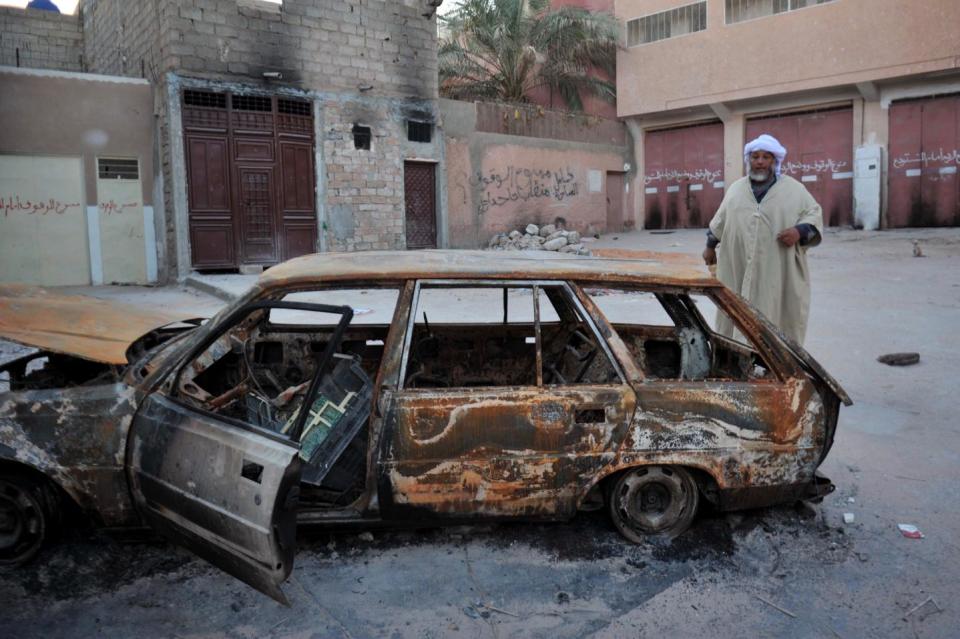2 dead as tensions rise in Algerian desert city
ALGIERS, Algeria (AP) — Sectarian tension in a southern desert city is boiling over after the deaths of two Berber men in as many days, including one that a local official said was knifed to death and disfigured under the eyes of police.
Ghardaia, on edge for more than a month, is split between Algeria's Mozabites, members of North Africa's original Berber inhabitants and followers of the rare Ibadi sect of Islam on one hand, and the majority Malekite Arabs. Unrest between the groups has been growing in the south, which has the lion's share of Algeria's natural resources — and much of its poverty.
"It will take only a single spark to burn up all of Ghardaia," Mohamed Djelmami, a local elder, told El Watan newspaper.
Thousands of Algerian police arrived in late January to calm the situation, but some in the Berber community accuse them of siding with the Arabs and inflaming the situation.
"The problem in Ghardaia is an extension of the fights taking place at the very top in Algiers. Let them leave us alone and settle scores between themselves," said Hamou Mosbah, a local official in the opposition Socialist Front.
Mosbah said the man killed Thursday, a 39-year-old Berber father of two, was knifed under the eyes of some of Ghardaia's many police. It took more than a day to identify him because he was so badly wounded, Mosbah said.
A 22-year-old Berber Mozabite student was killed on Wednesday during a street fight.
The city has been calm since Friday, when white-clad Berber mourners filled the streets, bearing the older man's coffin aloft.
"The government is determined to apply its laws in all their force against anyone who violates the security of an individual or his property," Interior Minister Tayeb Belaiz said Thursday at the end of a high-level security meeting in Ghardaia. Security reinforcements "will be tripled, even quadrupled, to definitively restore calm."
Algeria's Berber, or Amazigh, community, which has its own language and makes up an estimated 30 percent of the population, is often at odds with the central government. Ghardaia is a rare city where traditional Arab and Berber communities live side by side.








